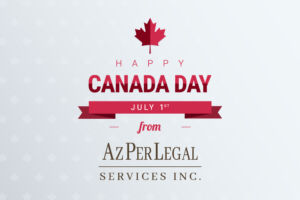A Will is a legal document which sets out your wishes with respect to the distribution of your estate upon your death. Your estate is comprised of your assets, for example, your personal possessions, your home, your financial investments and your bank accounts, among other things. A Will addresses three main issues: (a) it appoints someone to act as personal representative (commonly referred to as your executor) of your estate – the individual who will actually carry out all of your wishes as set out in your Will; (b) it appoints individuals whom you wish to take care of any children you may have at the time of your death or any child or grown who is under your care at the time of your death; and (c) it provides instructions regarding who should be given what from your estate. In a day and age where families are blended, it is important to be sure that your Will takes into account the complexities of blended families as well as other less common matters, for example, if you have pets, who will assume ownership and responsibility for them, or if you own your own business, what happens with it. These are a few examples of matters that are dealt with in a Will.
It is important to have a Will properly written and executed before you die. If you do not have a Will in place and you have children, it will be up to a member of your family to apply to the Court to obtain guardianship of them. This is a costly and not always successful process. And in the event there is no family member, your children will become foster children and will be under the control of the Government. Furthermore, if there is no one to distribute your estate, the Public Trustee of the Government of Alberta will be appointed to do so and they will follow a formula of distribution pursuant to the Wills and Succession Act. This formula may be the farthest from your wishes possible. Above all, if no Will is in place, the process of appointing guardianship of your children and of distributing your estate becomes a much more difficult and expensive process.
A Will must be properly executed. The individuals who you name to inherit anything from your estate cannot be witnesses to your Will. Nor can their spouses. People or entities who you name to inherit from your estate are called beneficiaries. If a beneficiary were to witness a Will, they would lose all entitlement they have to the inheritance. Even if the spouse of a beneficiary witnesses a Will, this is sufficient for the beneficiary to lose that entitlement. Furthermore, when the Will is signed, it must be signed in front of the witnesses all at the same time and the witnesses must execute further documents before a Commissioner for Oaths or Notary Public at the same time. Quite simply, the signing of a Will is not a two step process – all parties – the individual signing the Will, the witnesses to the Will and the Commissioner for Oaths/Notary Public must be present for the signing.





